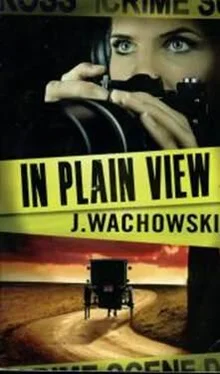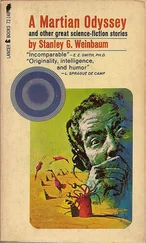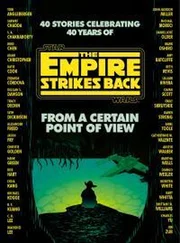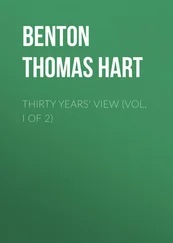“Big surprise there,” I noted.
“-as well as Melville and Beckett.”
“Beckett?” Ainsley repeated.
“Yes. In the play Waiting for Godot. ”
“I read that freshman year of college.” He shot me a bug-eye look.
“An accurate estimation of incidence is difficult to establish because the behavior is almost always conducted in absolute privacy. Most practitioners seem to make arrangements for self-release mechanisms.”
“Really?” I stopped her. “Such as?”
“They pad the rope, use quick release knots, carry knives, those sorts of things. Of course, it’s important to remember these are the things which have been noted at death scenes.”
“So they’re failed self-release mechanisms.”
“Precisely.” She crossed her arms over her chest. “But they are the clues that help rule out suicide as the cause of death.”
I had to think for a minute. Our Tom hadn’t padded the noose, as far as I could tell. Had he managed to rig his rope in such a way he believed he’d walk away?
“What other elements would you see at a typical death scene?” I asked.
“Generally, pornography is noted,” she ticked off a mental list, “partial or complete nudity of the genitalia and an absence of a suicide note. There are complex physiological, and emotional, contributing factors here. I’m sure you’ll agree it’s not something easily pared down and digested for network television.”
“What if it aired on Frontline, Doctor? Or CNN?” I tossed back. “One of the programs where you get your news. Would that make it acceptable?”
She pulled upright, as if I’d insulted her. “No. You miss my point. We need to limit all mass media exposure of the topic. Those most at risk for death due to experimentation are young people whose access to information is inversely proportional to their capacity for good judgment. Teenagers are going to take risks. The risks associated with imitative behavior, in this case, are quite simply, life and death.”
People always have such sensible reasons for censorship.
“What about those adults who need education on the subject? The opportunity to raise awareness and prevent further suffering?” Dr. Graham was starting to get on my nerves and I could hear it coming through in my voice. Not the best interview technique.
“Unfortunately, I know of no television forum in which adults can speak with other adults without the risk of children listening, Ms. O’Hara. Do you?”
“Thought all you psychological types knew the story of the elephant in the living room,” I parried. “It isn’t going away because we pretend not to notice.”
“Interesting,” she commented softly, as though she were talking to herself.
Suddenly, I was very aware of her attention honing in on me specifically.
“Are there no circumstances under which you would consider keeping something out of the public eye, Ms. O’Hara?”
“There are no circumstances under which I wouldn’t be damn suspicious of any such request, Dr. Graham.”
“Really? How would you feel about your son or daughter watching your program?”
“I don’t have a son or daughter.” The words flew out of my mouth.
Ainsley’s head turned. I ignored him.
“Exactly.” The word resonated in her lovely voice as a sort of challenge. She looked down at her watch and said, “I’m sorry. I have another appointment coming in a few minutes. You’ll have to excuse me.”
Ainsley interrupted with some polite noises and smoothed the moment over. Interview over-and I was three for three. Strikeout.
We wound our way out of the place as fast as I could follow the signs.
“You okay?” Ainsley said.
“Fine,” I lied. My face felt hot. The curse of fair skin is transparent emotions. The doctor’s words had shaken something that my sister’s death hadn’t even managed. I’d spent my whole life alerting adults to the trouble ahead-behind, everywhere.
I’d never doubted that work.
“Now what?”
I put my sunglasses on before we stepped outside. “We make some more calls. See if someone else is willing to do an on-camera.”
Ainsley looked confused. “But the doctor said it could be dangerous.”
“There’s always somebody who doesn’t want you to tell the story, College.” The artificial cold of the hospital lingered in my voice. “Always. Sometimes they sound so reasonable.”
The doors swept open and we walked out, shoulder to shoulder. Cold, hospital-scented air-conditioning evaporated into the dusty afternoon heat. I sucked in a lung full and tried to warm myself inside.
The boy didn’t give up. “But…what if she’s right?”
4:35:29 p.m.
By the time we returned to the station, I’ll admit, I was looking for an excuse to drop on somebody. Two days on the job and I had barely ninety seconds of air time covered. No photos, no sources, no cooperation from anyone-except my Boy Wonder.
I sent Ainsley to get us an engineering booth so we could load my stills in the computer and went to find out about my new office.
Barbara, Gatt’s opposable thumb, greeted me with the carefully neutral face of someone who knows a lot more than she’s telling you. I stood still for another once-over and she showed general approval of the absence of leather. When I asked about my office, she blinked her Raggedy Ann eyelashes, frowned and unwrapped herself from her phone headset.
“Follow me.”
Swear-we walked three and a half, four minutes, tramping all through the building until we finally arrived somewhere deep in the old tape library. She pointed her finger that away. Crammed in a niche between two eight-foot tall stacks, at the farthest end of a corridor, was the ugliest work cube in the Midwest flatland. No chair. No computer. Oh, and no phone.
“Mr. Gatt said you needed something private. They’ll install the phone next Monday or Tuesday,” she assured me, all practicality. “PC should come in the week after.”
“Great. Sure they will. You want to lead me back to Gatt’s office, or was I supposed to drop a trail of bread crumbs?”
She looked at the ground, got the smirk under control and executed a sharp turn. “Right this way.”
I banged Gatt’s door wide while knocking, and called out over his voice, “I got a problem here.”
The door rebounded shut behind me.
“I’ll call you back.” Gatt slammed the receiver down. It didn’t ring again, although the lights started twinkling frantically; Barbara must be holding the line, so to speak. “What the hell’re you thinking? You don’t knock?”
“I knocked. What the hell are you thinking? I told you, I need an office.”
He did a quick paper shuffle. “I told them to set you up.”
“Yeah, they set me up, all right. Whichever wise-guy had the idea to make me Bob Cratchit in the tape dungeon gets a big hee-haw, Gatt. I need a desk and a phone and a door I can fucking close.”
“Oh, Christ, not again,” Gatt whined. “I’ll try and talk to operations.”
Both palms flat on his desk, I leaned in toward him. I could feel the grit of spilled sugar under my hands. “You do that.”
“You get me anything to look at today?” he asked.
“No.”
“You want to be a pain in the ass, O’Hara, you’d sure as hell better come across with something I can sell.”
“No pain. No gain.” I stood up and brushed my hands clean. “I’ll get you a story. You get me an office.”
Climbing your way up television’s mythical ladder of success to the point you are- ta da! -someone is a hell of a lot of work. The effort it takes to hold your ground, continue being Someone, is worse. I wanted an office to get my job done, but I needed the office to rate some respect.
Читать дальше












